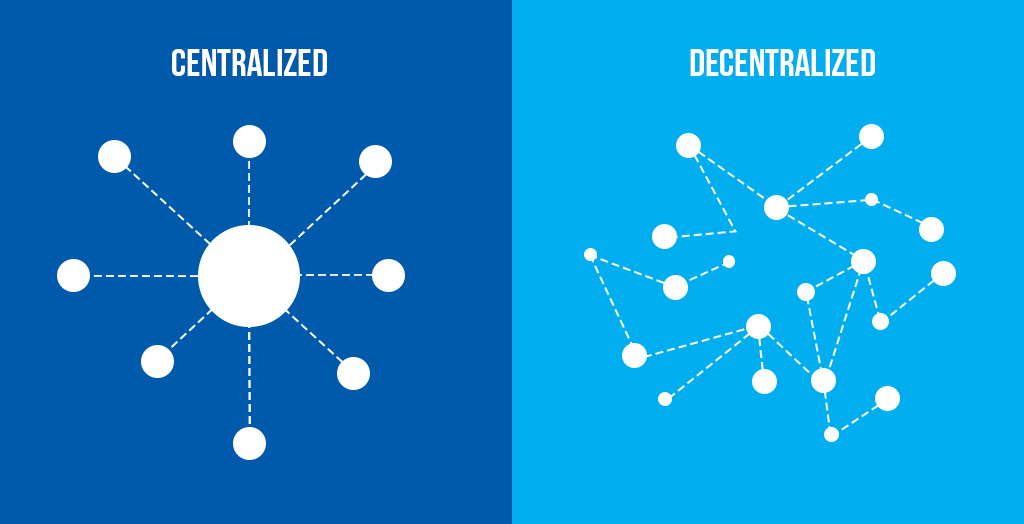Decentralization: What is it? Why is it important?
Decentralization is the process and organizational structure by which the activities of an organization regarding planning and decision making, are distributed or delegated away from a central, authoritative location or group. Instead of a centralized authority making decisions others must follow, a protocol or set of rules, code of conduct and principles lead the group, and each member, holding and following the rules, becomes the authority, the order maker and the order follower in-one. By consensus of other members of the group, any proposed action the group should take, any proposed statement for the group to make, or any improvement to the protocol, code or rules that guide the group, must be analyzed by the members such proposals are submitted to, to ensure that the proposal aligns with the existing protocol, code and principles. If it is the consensus of the group that the proposal is in alignment and also beneficial to the group, then the proposal can be adopted or executed. If it is found to be in violation of the protocol, code or principles, then it is rejected by the group, and the node who made the proposal is informed that such execution, implementation or adoption of the suggestion on their part will result in removal from the network as a node, and possibly further actions such as public denouncement of the proposal, or the person who made the proposal if it is found that they are engaging in destructive or illegal actions that put members of the GFM Network at risk of criminal prosecution or bodily harm, or any controlled opposition style behavior that would result in governments having justification to prosecute individuals by conspiracy to commit a crime or guilt by association.

Through adherence to this mechanism, we can defend the movement from the egotistical whims of individuals attempting to steer the movement away from its purposes and goals, we can prevent many of the ways that agencies will try to infiltrate and derail the movement, and we can better protect good intentioned people from being manipulated in ways that could see harm or legal trouble come to themselves or their families.
Main Principles of decentralization
Simplicity - Centralized structures require complex and bloated management systems.
Repetition - There is no need for constant refinement and retuning, tasks can be replicated at ease.
Transparency - Nodes must submit proposals to other nodes to have changes adopted.
Security - No one individual can steer the group or alter the group without consent of other members.
Speed - Actions can be taken swiftly without the slow approval process of central command chains.
